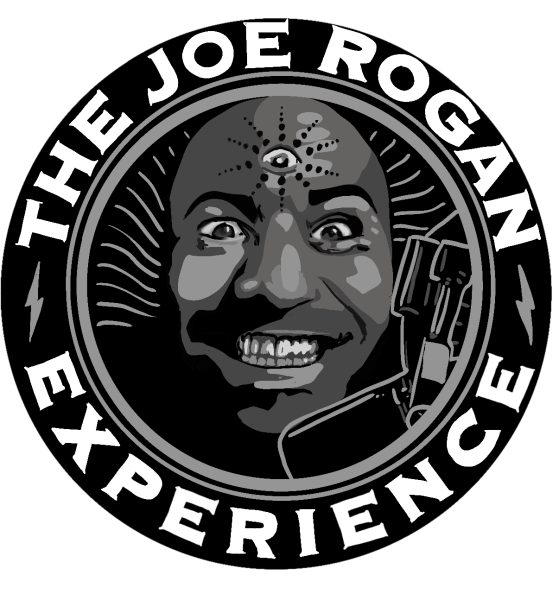Talk shows have been present in airwaves for a long time. Since the ’50s, viewers across the world have tuned in night after night to television staples like “The Late Show” and “The Tonight Show,” excited to see which celebrity would be interviewed next. Hosts like Jay Leno and Conan O’Brien have amassed expansive followings with their magnetic personalities and ability to conjure conversation from seemingly thin air, propelling them into the A-list along with their celebrity interviewees.
The 21st century has seen a new version of the talk show rise — podcasting. Podcasting flips many of the typical talk show tropes upside down.
Instead of live shows with large stages and hundreds of attendees, podcasts are often pre-recorded in small rooms with a limited — or, in most cases, nonexistent — in-person audience. The charismatic host interviewing the relatable celebrity takes a new form as well — doctors discussing different medical conditions, political activists exploring different causes, and internet sensations hoping to extend their newfound virality. With podcasting, anyone can have their own show, and it can be about anything.
Anjie Cao, a Stanford graduate student and one of the hosts of the “Stanford Psychology Podcast,” cites the medium’s rise as a direct result of the increasing affinity for learning.
“People just like to get new information these days,” Cao said. “Podcasts are very convenient sources.”
In addition, Cao said she believes that podcasts have become popular because they can be enjoyed anywhere.
“Listening to podcasts while driving, for example, will make you think ‘oh, I’m still learning,’” Cao said. “I’m not just driving and wasting my time.”
While all podcasts are grouped together, they can differ greatly in content.
For this edition, we listened to and review three podcasts. We picked these podcasts based on popularity, differing genres and purpose.

Crime Junkie
“Crime Junkie” is the seventh most popular podcast on Spotify and the most listened-to crime podcast on the app, a prominent genre in the podcast world.
Ashley Flowers and Brit Prawat, two true crime enthusiasts, host the podcast. The episode we listened to was titled “MYSTERIOUS DEATH OF: Bethany Deaton from Kansas City.” Overall, while listening, we enjoyed the unscripted feel of the podcast.
Despite the millions of dollars the podcast generates, the production still feels casual and authentic, with the two hosts exchanging ideas and engaging in genuine conversations during the episode.
We also really enjoyed listening to Flowers’ storytelling ability. She does an amazing job of maintaining the suspense of the story throughout the episode by not revealing too much information too fast.
Our biggest piece of criticism is that, at times, the two hosts steered away from the main story or focused on details that felt irrelevant, which made some sections of the episode boring. For example, we felt like they focused a lot on small family details of the victim before the murder, which didn’t add much to the storyline.
Overall, we like the way the podcast is structured, with each episode telling a different story.
The Joe Rogan Experience

“The Joe Rogan Experience” has, for a number of years, been the most popular podcast in the entire world, topping Spotify’s charts.
In 2020, Spotify signed a deal with Joe Rogan to air his podcast exclusively for $200 million. Rogan hosts a different guest each episode, and a typical episode runs for around two and a half hours. Shane Smith, a co-founder of Vice Media, accompanied Rogan in the episode we listened to.
What we enjoyed most about the podcast was the number of different subjects discussed in one episode. Unlike typical podcasts, where each episode has an overarching theme, Rogan and his guests touch on dozens of topics.
In the episode with Smith, the pair’s conversation touched on hundreds of topics, from interdimensional travelers to how someone can run a successful business — highlighting Rogan’s superpower, which is his ability to keep a good line of dialogue.
Despite the range in fame and success his guests have, Rogan always finds a way to maintain a genuine conversation, one that makes you feel like you are sitting at his table right next to them.
The dialogue on the podcast is authentic and free-flowing, perfectly reflecting Rogan’s curiosity about any topic brought to him. Throughout the episode with Smith, we were blown away by Rogan’s ability to keep an interesting line of dialogue going, by consistently asking questions, exchanging ideas and going deeper into what Smith said and believed.
However, we still found myself to be bored at some points, but that’s one of the consequences of listening to a real conversation that lasted two and a half hours.
Overall, we had a very positive experience listening to Rogan’s podcast, and due to the extreme range of professions, backgrounds and cultures his guests have, anyone who listens to Rogan’s podcast is inevitably going to learn about many different perspectives on life from across the globe.
 Call Her Daddy
Call Her Daddy
Evocative, raunchy and profoundly women-centric, “Call Her Daddy” is the second most popular podcast on Spotify, and the most popular female-hosted podcast on the site — a fact host Alexandra Cooper doesn’t shy away from, declaring in an interview with the New York Times in 2022 that “‘Call Her Daddy’ stands for feminism.”
The podcast’s guest stars reflect that desire — from Miley Cyrus to Halsey, some of the world’s most notable female figures have featured on Cooper’s podcast at one point or another.
October 6’s episode may have seen the show’s biggest guest yet — current United States vice president and 2024 United States presidential candidate Kamala Harris.
In the interview, Harris details her goals for office, gives insight on her relationship with family and reflects on her tenure as vice president.
We thought Cooper did a great job conducting the interview, asking Harris questions most media outlets stray away from — from her view on parenthood as a stepmother (what constitutes true maternity?) to the lessons her mother taught her (“don’t let things happen to you without thinking, ‘okay, what can I do in this moment?’”).
As the interview progressed, the podcast’s feminist-centric themes began to unveil, with Cooper focusing on Harris’s plans regarding Roe v. Wade and reproductive rights in general, and asking her what she’d do to “make this country safer for women?”
We found it impressive that even in a high profile interview like this, Cooper made sure the ideals, values and focus of the podcast remained prevalent. By honing in on Harris’ identity as a black woman, Cooper indirectly supplied the presidential candidate with bursts of relatability, allowing her to correlate her own experiences and identity with that of Americans across the country.
Overall, we enjoyed the episode greatly. Cooper’s magnetic personality and the vice president’s easygoing nature made for great rapport, allowing Harris to communicate with America briefly before the election.


